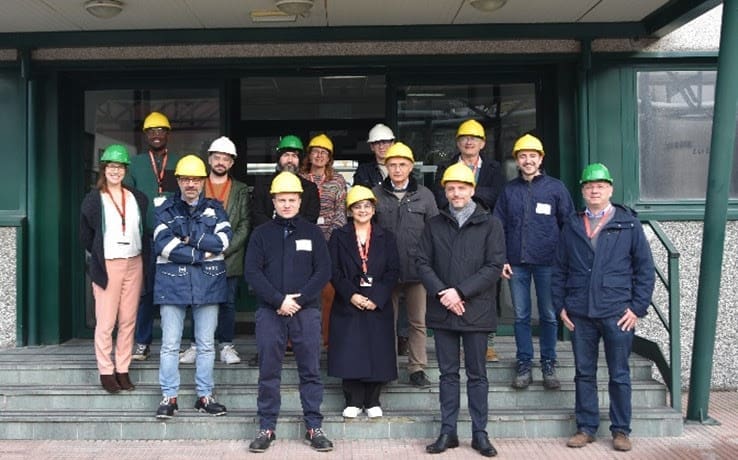The two chemo-enzymatic demo plants were commissioned in 2023
Launched in September 2019, the INCITE project ended in December 2023 after 52 months of collaborative work. The project aimed to demonstrate novel integrated upstream and downstream processing paths involving flow chemistry and membrane technology in chemo-enzymatic processes. These processes enable production efficiency and have positive outcomes on the environmental impact (up to 40% less CO2 emissions, reduction of energy consumption, etc.). The modularity and flexibility of the developed processes were showcased through two demonstration cases in real industrial settings:
- The oleochemical demo plant inaugurated by Oleon on its production site in Oelegem, Belgium, in June 2023.
- The agrochemical demo plant commissioned in September 2023, on Endura’s site in Ravenna, Italy.
SUCESSFUL PROOFS OF CONCEPT FOR OLEON AND ENDURA
In committing to INCITE, the partners had high expectations not only of the environmental performance of the processes implemented, but also of their efficiency. The Social Life Cycle Assessment (S-LCA) carried out by Ghent University on the social, environmental, and economic performance of the products obtained confirms that the expectations of the partners were met. The economic and environmental aspects of the analyses were based on samples of 1 kg of the products (Isopropyl palmitate and Isoamyl laurate for Oleon and an agrochemical intermediate for ENDURA) obtained via INCITE processes, to evaluate their impacts from cradle-to-gate. Whereas the social aspect relied on a questionnaire
addressed to the stakeholders of the project.
As example, the oleochemical demonstration plant reduces CO2 emissions by over 40% and waste by 60% compared with traditional production methods.
Other noteworthy achievements include the close collaboration and reinforced partnerships between ENDURA, BiCT and Fraunhofer IMM in optimizing the production process in the agrochemical track, and between Oleon and VITO in optimizing the production process in the oleochemical track.
TRAINING ACTIVITIES
One key activity of the project was the development of a series of 10 online learning modules, which are accessible for free on an open platform. These modules were developed by Ghent University in collaboration with each partner. The subjects range from enzymatic production to Life Cycle Assessment in the chemical industry.


Furthermore, a series of webinars were offered with intertwined content to the learning modules. Each webinar related to a learning module and included a Q&A session. In spring 2023, 4 new sessions were recorded and made available on the INCITE YouTube.
In December 2023, the modules, webinars, and courses developed as part of the training activities had welcomed more than 2,000 participants.
The training activities including communication and dissemination were part of Work Package 8, coordinated by Bioeconomy for Change.
FINAL PROGRESS MEETING IN RAVENNA

From 11 to 12 December 2023, ENDURA hosted the final meeting of the INCITE project in its site, in Ravenna. The presentations focused on the achievements of every partner and the preparation of the project closure.
This meeting was also the opportunity for the partners to visit the agrochemical demo-plant of ENDURA that was commissioned in September 2023 and BiCT facilities in Villanova to inaugurate the pilot subunit financed by the project.
WHAT IS NEXT?
• Oleon is aiming for larger-scale deployment of its enzymatic esterification.
• ENDURA will deploy its products on the market, benefiting from the advantage that provides the enzymatic production of the agrochemical intermediate.
• VITO will proceed participation in European projects to provide its expertise in redesigning existing production schemes into more efficient ones through enzymatic processes.
• Bioeconomy for Change will enrich the members of its networks and stakeholders with the knowledge acquired through its participation in the project.
• Fraunhofer IMM will use its gained experience with the development and implementation of the demo scale Flow Chemistry skid to foster the implementation of Flow Chemistry in chemical production by supporting industry partners by R&D services in their corresponding efforts.
• The STEN research group of Ghent University will write a scientific article highlighting the findings of the sustainability assessment. They will work further upon these insights in a new European project on the sustainability and circularity assessment of bio-based products, named ESCIB, which just started in January 2024.

